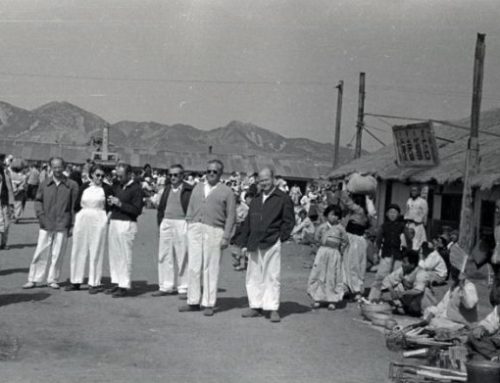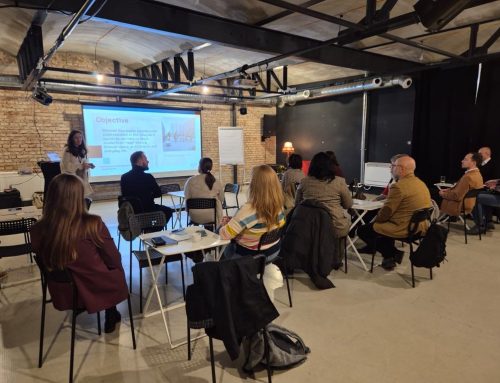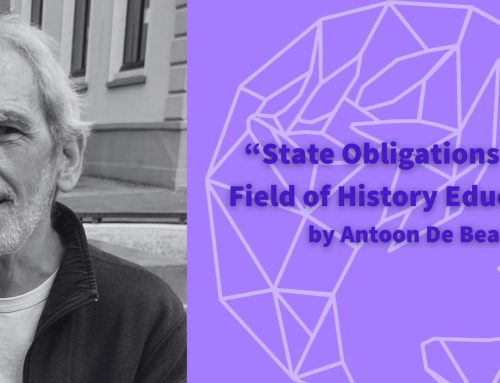What if a student said: “Jewish people have controlled the entire media industry.” “Jewish people have invented the Holocaust for political or financial gains.”? What if they brought up other anti-Semitic conspiracy theories in the classroom? Or what if they experienced anti-Semitic hate speech and harassment? As a teacher, how should you tackle these issues in educational environments?
Aiming to assist teachers in addressing anti-Semitism, ODIHR (OSCE Office for Democratic Institutions and Human Rights) has developed ten specialised teaching aids dealing with this pressing problem. These aids are part of a set titled “Addressing Anti-Semitism through Education”. They provide guidance for teachers on how to respond to anti-Semitic incidents and students’ difficult questions or behaviour in class. They cover a wide range of topics, from anti-Semitic prejudice and conspiracy theories, to Holocaust denial and online anti-Semitism, amongst others. Fostering human rights, addressing intolerance, and encouraging critical thinking are the core values of their learning approach.
The teaching aids also offer strategies for educators to counter their own implicit biases. Anti-Semitic biases, even when they are unconscious, can have detrimental effects. They can cause teachers to treat their Jewish students and colleagues in an unequal manner, give way to bullies or skew their choice of relevant information to present in class. To overcome this problem, Teaching Aid number 2 explains how unconscious biases function, and how to recognise and mitigate their negative influence on teachers’ decisions. The aid suggests various methods and activities to achieve this. Some examples include “counter-stereotyping” – being exposed to positive stories and images of the stereotyped groups; “blinding” – for instance, hiding students’ identities when marking assignments; and “perspective-taking” – spending time learning about the students’ lives, feelings, and perceptions.
Teaching Aid number 3 looks at how to address anti-Semitic stereotypes and prejudice with students, in the classroom. It unpacks and offers detailed examples of anti-Semitic stereotypes and prejudices, and suggests several debunking strategies and activities. These include a list of critical questions that one should ask to evaluate the sources and evidence behind a narrative. It also provides specific scenarios where students express these kinds of stereotypes at school, and instructs teachers on what to do in each case.
The teaching aids are available in English, French, German, Macedonian, Russian, Polish and Italian. The full set of the teaching aids can be found here: https://www.osce.org/odihr/441146.
With a similar goal to encourage tolerance and non-discrimination through education, EuroClio is currently holding a thematic month on the topic of “Challenging Stereotypes and Preconceptions.” We have been launching a webinar series surrounding this theme, which entails 4 online sessions where participants can discuss how to address stereotypes in educational contexts. The first two sessions – a Keynote Lecture on “Stereotypes and Implicit Biases in Education” and an Active Workshop on “The Pink Triangle: History and Memory of LGBTQ+ in European Culture” – have taken place successfully. We learned about the psychology behind stereotypes, how they are internalised and linked to discrimination, and how to reduce their impacts on our behaviour. We also had the chance to try out innovative teaching methods, specifically on the topic of LGBTQ+ remembrance, and access useful resources dealing with this issue.
The last two sessions of this webinar series will be held on March 23 and March 30. NEXT WEDNESDAY, History Professor Marko Šuica will host an Active Workshop on “Stereotypes and Prejudices in Learning History”, where you can explore teaching strategies and lesson plans that help to challenge stereotypes and preconceptions in the classroom.
You can register for the webinar HERE!
For more information, please visit:
https://euroclio.eu/event/challenging-stereotypes-and-preconceptions-webinar-series/.
This blog post was written based on the contents of the Addressing Anti-Semitism through Education: Teaching Aids developed by ODIHR.













